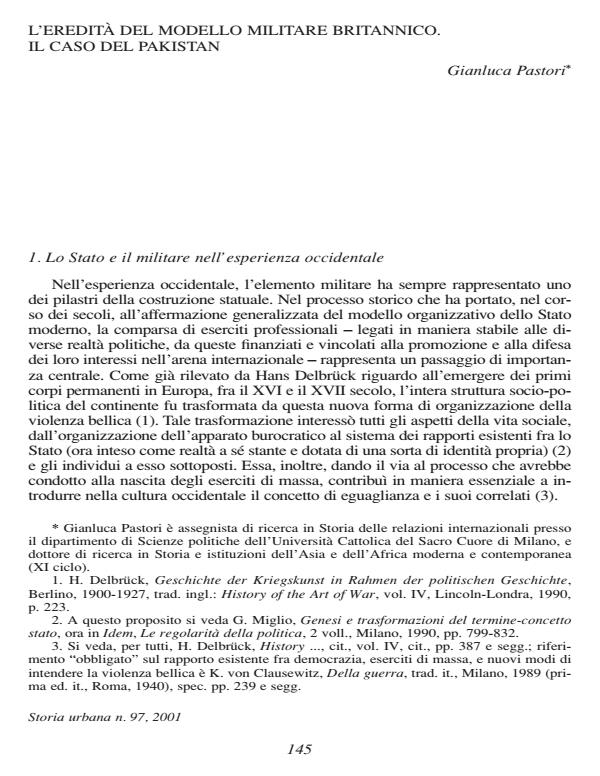L'eredità del modello militare britannico. Il caso del Pakistan
Titolo Rivista STORIA URBANA
Autori/Curatori Gianluca Pastori
Anno di pubblicazione 2003 Fascicolo 2001/97 Lingua Italiano
Numero pagine 22 P. Dimensione file 93 KB
DOI
Il DOI è il codice a barre della proprietà intellettuale: per saperne di più
clicca qui
Qui sotto puoi vedere in anteprima la prima pagina di questo articolo.
Se questo articolo ti interessa, lo puoi acquistare (e scaricare in formato pdf) seguendo le facili indicazioni per acquistare il download credit. Acquista Download Credits per scaricare questo Articolo in formato PDF

FrancoAngeli è membro della Publishers International Linking Association, Inc (PILA)associazione indipendente e non profit per facilitare (attraverso i servizi tecnologici implementati da CrossRef.org) l’accesso degli studiosi ai contenuti digitali nelle pubblicazioni professionali e scientifiche
The process which led to the creation of a "rational" and "a-political" military machinery has been an essential step in the development of the modern Western state. According to the traditional historiography, this process started, in Britain, in 1640, with the approval of the Self denying ordinance, banning MPs from having military commands in the national army. Anyway, it took a long time, even in Britain, to clearly subordinate the armed forces to the political power. From this point of view, the military structure transferred to India in 1858, after the crushing of the "great mutiny", has not been a true "a-political" one, but still reflected the strong "inward approach" adopted by the East India Company in the dealings with its subjects and the local powers. Neither the pre-war reforms (mainly the Kitchener’s one, in 1902), nor the post war ones, ever changed this approach, which led, after the Partition in 1947, to the emergence of a similar "inward" orientation in the new born Pakistani army. In this perspective, General Ayub Khan’s putsch, in 1958, has been the clearest sign of the very special relationship emerged in the country between its civil and military structure, a very special relationship still existing behind the bloodless seizure of power by general Musharraf, in 1999.;
Gianluca Pastori, L'eredità del modello militare britannico. Il caso del Pakistan in "STORIA URBANA " 97/2001, pp , DOI: